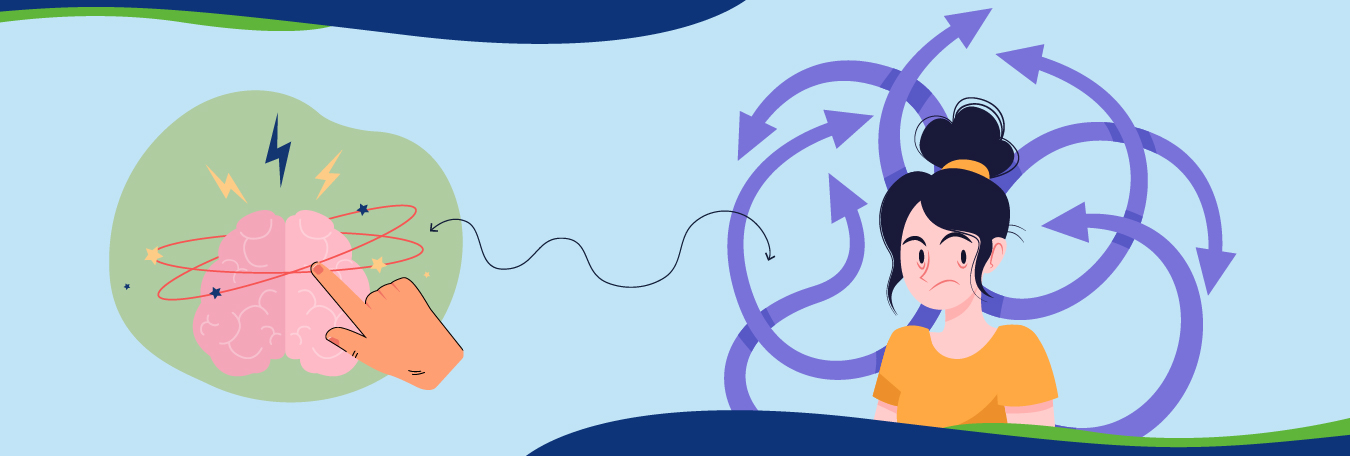Have you ever been in a relationship that starts with love bombing, but it gives you pain in the end? If the answer is a resounding yes, it might be narcissistic abuse syndrome.
Narcissistic abuse is a psychological abuse that makes the individual question their self-worth. It’s a personality disorder that exploits the minds just to use them to meet their own needs and desires. Moreover, Narcissistic abuse syndrome is an unofficial diagnosis that develops after experiencing narcissistic abuse. It further leads to long-term mental health conditions, such as depression, anxiety, and PTSD.
In this article, you may get to know about narcissistic abuse syndrome, its traits, impact on mental well-being, stages of narcissistic abuse, treatment options, and strategies to cope with it.
Understanding narcissistic abuse syndrome
Narcissistic abuse syndrome is not a mental health condition, it’s a nonmedical term of narcissistic abuse and can also be known as ‘narcissistic victim syndrome’. This unofficial diagnosis is used to check the severity of narcissistic abuse. However, people struggling with narcissistic abuse syndrome feel like they are choked in a relationship and tend to remain fearful and confused. Moreover, the psychological effects of narcissistic abuse lead to self-blaming, lack of confidence, and loss of identity.
Read More: Gray Rock Method Can Be Used As A Powerful Tool For Toxic People
What are the effects of narcissistic abuse syndrome on mental health?
Narcissistic abuse causes long term mental health issues and causes deep trauma. People with narcissistic abuse syndrome usually isolate themselves due to fear.
If the narcissistic abuse lasts for a longer period, it will cause mental health disorders. These include:
Anxiety
People who are living with a narcissistic personality disorder remain in fear and anxiety all the time, they usually have panic attacks even if the abuse has ended. They remain in the fear that the narcissist might burst on them again, so they remain in fight or flight mode all the time.

C-PTSD
PTSD occurs after experiencing a tragic and traumatic event in the past, while C-PTSD occurs after experiencing prolonged trauma or stress. Getting abused emotionally, physically, or verbally causes C-PTSD. It causes difficulty in relationships, low self-esteem, emotional weakness, feelings of shame, and worthlessness.
Depression
Narcissistic abuse can lead to depression as excessive criticism and invalidation cause sadness, worthlessness, and hopelessness. The emotional exploitation makes the individual drained, confused, and isolated. They start questioning their self-identity and this prolonged confusion causes self-doubt.
Read More: Social Media and Mental Health’s Dangerous Link
What are the stages of the Narcissistic abuse cycle?
Individuals with narcissistic personality disorder have difficulty maintaining relationships; it can be with family, friends, or coworkers. They emotionally manipulate others just to gain power and dominance in their relationship. However, there are different stages of the narcissistic abuse cycle, which include:
Idealization stage
In this stage, people with narcissistic disorder make the other individual feel special and unique. It can be any relation, such as a friend, a spouse, or a coworker. However, in a romantic relationship, they praise you and make you feel like you are the only person they fall for. They seem overwhelmingly attracted to you and dazzle you with gifts. Despite showing some signs in the start as well, such as making you feel guilty for spending time with others.
Devaluation stage
In this stage, people with narcissistic disorder start devaluing the other person. They start making negative comments, or make them feel like they have made a mistake.
They start accusing you until you make yourself question your own sanity or memory. Here are some signs of devaluation stage:
- They start making excuses for poor behavior
- Criticism
- They start playing mind games
- Lack of validation
- Comparisons with others
- Humiliation in public
- Excuses for poor behavior
Repetition stage
The devaluation stage makes the individual feel depressed and anxious. Some people try to please their partner to save the relationship, while some take distance to save themselves. However, this distance makes the narcissist hurt, and they try to make efforts to save the relationship. They start idealizing their partners again until they feel secure in the relationship, and then start devaluing them again.
Read More: How Are Attachment Issues Developed? Treatment Methods!
Discard stage
Discard stage plays in different ways, the narcissist decides whether you are useful to them or not. They might brutally leave or reject the other person. Or, the person who is living with a narcissistic partner might wake up and stand for themselves. They might leave the narcissistic person after getting devalued. However, if the relationship prolongs it will start with a cycle of idealization, devaluing, and discarding repeat itself, until it ends.
People with narcissistic traits tend to have short term relationships usually because they protect their own fragile sense of self by gaining power.
What are the tactics of a narcissist?
People with narcissistic traits have a sense of self-importance and cold-heartedness. Here are some of the most common tactics used by narcissists are as follows.
Gas lightening
A narcissist uses techniques like gaslighting to make you doubt your own perceptions. For example, if you see a shooting star in the sky, but the narcissistic person sitting beside you says that there was nothing. It eventually makes you question your own perception and memory.
Control and isolate
The person with narcissistic disorder tries to control their partner by making them isolated. This is the core tactic of narcissistic abuse, they start cutting them off from friends, family, and even hobbies and they solely depend on them. They make the other person believe that they are the only person who loves them just to gain control over them.
Emotional manipulation
The narcissistic individual sometimes shows intense love and sometimes criticizes you over small things just to gain power. They collect the insecurities and weak points just to gain control over and satisfy their fragile ego.
Victim card
People with narcissistic characteristics play a victim card just to gain sympathy. They involve a third person in the conflict to gain sympathy from others. They never accept their mistakes, they twist the truth, just to avoid responsibility or to control.
Hoovering
This is the most common tactic of narcissism, in which they praise and compliment their partner excessively. They give expensive gifts just to make the other person think that they are really important.
Financially abuse
They financially abuse their partners by controlling their finances without regard to their well-being. They make their partners to remain dependent on them financially so that they exert dominance.
Silent treatment
The narcissist often manipulates by giving silent treatment as a punishment. However, not every person who remains silent after an argument is living with NPD. Some people use this tactic just to calm their anger as well.
Read More: Mental Health Tips For Physical And Emotional Well-Being
Treatment options
Recovering from narcissistic abuse syndrome is possible with the right medication and therapeutic approaches.
Medications
- Fluoxetine
- sertraline
- Prazosin
- Lithium
- Valproate
- lamotrigine
- Aripiprazole
- Ziprasidone
- Risperidone
Psychotherapy
Talk therapy is used to treat several mental disorders, including narcissistic abuse. Healthcare professionals use a combination of two or more therapies to meet the desired mental health needs of individuals. Here are some of the therapies that help treat narcissistic abuse.
Trauma-informed therapy:
Trauma therapy, such as Eye-Movement Desensitization and somatic therapy helps individuals who have experienced narcissistic abuse. Moreover, Eye-Movement Desensitization a healthcare professional ask to individual to move the eyes from left to right. This method helps in changing the information about the traumatic event. Furthermore, this therapy helps in reestablishing self-esteem by releasing the trauma.
Cognitive behavioral therapy
Cognitive behavioral therapy is an evidence-based therapy that helps in treating narcissistic abuse. CBT is based on the principle that thoughts, feelings, and behaviors are interconnected. CBT targets unsettling thoughts and beliefs by changing the negative thoughts into helpful ones. It helps in reducing anxiety, depression, and low self-esteem.
Read More: Transference-Focused Psychotherapy: Unlocking The Power Of Relationships In Therapy
Dialectical behavioral therapy
DBT is also a form of Cognitive behavioural therapy. DBT is for those people who are struggling with emotional distress due to narcissistic abuse. DBT is based on the idea that two opposing things can co-exist. In therapy, it means that you can accept your thoughts and emotions and still move on from them by changing them into productive thoughts and emotions. This therapy teaches us mindfulness, stress tolerance, and interpersonal techniques.

Psychodynamic therapy
It is a non-cognitive behavioral intervention. Psychodynamic therapy explores the patient’s past experiences and finds their link with the present emotions and behaviors.
It is not an evidence-based therapy for treating narcissistic abuse. However, short-term psychodynamic therapy (STPP) has significant benefits in managing the symptoms of narcissistic abuse. This therapy helps in finding deep-rooted issues and improves future relationships.
Internal Family Systems (IFS) therapy
In Internal Family Systems (IFS) therapy the therapist involves the family members in the therapeutic process. It helps in managing C-PTSD and helps individuals to overcome the different parts of trauma. The main goal of this therapy is to find the exiled parts and reconnect with oneself.
Read More: Attention Seeking Behavior & The Emotional Struggles Behind It?
What are the strategies to cope with narcissistic abuse syndrome?
Here are some of the strategies that can help in overcoming narcissistic abuse syndrome.
Set boundaries
First of all, you should learn to say “no” to a person when you don’t feel like doing that task. Set healthy boundaries in your relationship, and always prioritize your needs and decide whether this is right or wrong. You must know when to stay with that relationship or the situation and act accordingly. However, when you set the boundaries, it helps you avoid further manipulations.
Practice self-care
This is the most important thing when you need to avoid narcissistic people. When you prefer yourself over others, you are training your mind for inner peace. Besides that, you can engage in such activities that give you happiness and joy. Other than to avoid people from being hurt, you can lemmatize your social circle among friends and people who care about you.
Build a support network
Avoid people who have played with your emotions and find yourself among people who care about you. You can also join the support group, which is helpful to avoid narcissistic abuse. In group network, people share their experiences, which helps in maintaining healthy relationships in the future.
Forgive yourself
Let go of the guilt, mistakes, and self-blame, forgive yourself for any shortcomings. Always remember that narcissistic abuse is the mistake of a narcissist, it’s not your fault. People blame themselves by saying why they have ignored red flags, or given another chance to a narcissist. However, self forgiveness is the key towards healing, a way towards better mental health, and helps in avoiding narcissistic abuse in the future.
Last remarks
Narcissistic abuse syndrome is a nonmedical term for narcissistic abuse. People with narcissistic tendencies have a lack of empathy and they try to take control of the other person just to gain power. There are different tactics and signs of narcissistic abuse, these include gaslighting, silent treatment, making other people guilty, idealization, and more. There are different stages of narcissistic abuse that include idealization, devaluation, repetition, and discard. However, the long-term narcissistic abuse can also lead to mental health issues like depression, C-PTSD, and anxiety. A professional healthcare expert recommends therapies that help in managing the narcissistic abuse that includes, CBT, DBT, trauma therapy, and more. Moreover, setting boundaries and prioritizing yourself in every manner helps reduce the chances of getting narcissistic abuse in the future.
Read More: The Psychology of Escapism: Coping Skill or Disastrous Action
Get narcissistic abuse support at Inland Empire Behavioral Group
If you have experienced narcissistic abuse and are looking for a platform where you can get your treatment. Look no further Inland Empire Behavioral Group, is here to help! We provide innovative and individualized treatment programs according to your unique condition. We provide evidence-based therapeutic approaches to effectively manage the symptoms of narcissistic abuse and other mental health issues. Our team is dedicated to helping you provide individualized and group treatments.




